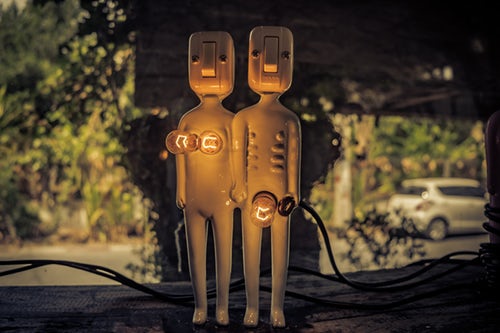- Google's latest software is advanced enough to fool people into thinking that it's human.
- It can only be attributable to human error.
- Look Dave, I can see you're really upset about this. I honestly think you ought to sit down calmly, take a stress pill, and think things over.

If you're interested in internet news and artificial intelligence, you may like to know that like the MIT algorithm and the Facebook CEO Bot before it, Google Duplex has successfully passed the Turing Test.
You may have seen the video going around of the new Google Duplex software calling up a salon to book an appointment for a haircut, fooling the unsuspecting hairdresser into thinking that A) it's human, and B) that it has hair. A recording of the amusing if creepy exchange was presented by Google CEO Sundar Pichai at the 2018 Google I/O event. What delighted/freaked out most people was Duplex's conversational nuances as if filled the phone call with convincing conversational ticks such as "umm" and "ah", as well as colloquialisms such as "gotcha".
The Turing test, named for its creator Alan Turning, was designed in 1950 as a means to test a machine's ability to exhibit intelligent behaviour equivalent to or indistinguishable from that of a human. Although people like myself are happy to nominate "human" status to any machine that shows the vaguest of human characteristics (my vacuum cleaner got a rug caught in it and now if you turn it upside down it kinda looks like a hat so now I call her Vicky Vacuum and she gets her own seat at the dinner table), the rules of the Turing Test are a little more stringent, and it's kind of a big deal when something passes it. Many people are citing that Google Duplex has definitely earned the distinction.
Obviously we should be cautious that this doesn't lead to AI booking us false appointments willy-nilly and/or rising up and destroying us. I'm personally also concerned about the new paradigm of social etiquette that will likely emerge. Like, will it be considered impersonal, even rude to have your AI call people? Will I find myself anxiously trying to impersonate the AI's voice so that my deceit is not detected? Will the AI be able to meet me halfway and throw in much, much more awkward mumbling? I hope so.
To delay the inevitable robot uprising, you can make sure you're feeding your AI the nomiest of WiFi noms by ensuring you have the best broadband you can possibly get.


